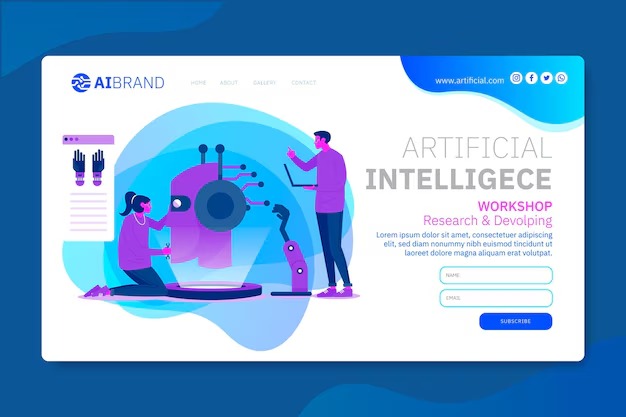
Exploring the Innovations of Lexis Draft in LexisNexis Gen AI Legal Research Tool
Exploring the Innovations of Lexis Draft in LexisNexis Gen AI Legal Research Tool
In an era driven by information and technology, harnessing cutting-edge solutions can revolutionize the way professionals conduct analysis and access data. Innovations in artificial intelligence have transformed traditional methods into streamlined experiences, elevating our capacity to explore relevant insights and enhance productivity. This evolution not only assists in simplifying complex tasks but also provides a competitive edge in various fields.
Venture into a realm where sophisticated algorithms work seamlessly to refine search parameters, filter through colossal datasets, and generate meaningful outcomes. Such advancements pave the way for enhanced decision-making processes and foster a culture of informed strategies. By leveraging state-of-the-art systems, users can efficiently navigate vast resources and uncover crucial information.
In this context, embracing these technological advancements is vital for users aiming to stay ahead in a rapidly changing landscape. Equipped with innovative capabilities, individuals can now approach challenges with newfound agility, optimizing their workflows and achieving unparalleled results in their endeavors.
Understanding Lexis AI’s Unique Features
In today’s digital landscape, innovative technologies are reshaping how information is accessed and utilized. One such advancement stands out with its distinctive functionalities designed to enhance user experience and efficiency. An exploration of these attributes reveals a sophisticated platform tailored to meet various needs in the realm of legal and business contexts.
Intelligent Algorithms enable users to obtain precise insights quickly. By analyzing vast arrays of data, this system enhances search relevance through contextual understanding and nuanced interpretations. This adaptability allows users to navigate complex queries with remarkable ease, significantly reducing time spent on information retrieval.
Natural Language Processing facilitates seamless interaction, allowing individuals to pose questions in everyday language. This feature bridges the gap between human communication and machine understanding, making it accessible for users across different expertise levels. As a result, professionals can retrieve comprehensive answers without needing extensive technical knowledge.
Data Visualization adds another layer by presenting insights in compelling formats. Users can explore trends, patterns, and relationships effortlessly, transforming raw data into actionable intelligence. This visualization capability not only enhances comprehension but also supports informed decision-making through visual aids.
Collaboration Features promote sharing and collective analysis among teams. Stakeholders can engage with findings in real-time, ensuring alignment and enhancing productivity through shared insights. This communal aspect fosters a synchronized approach to tackling challenges and streamlining workflows.
Overall, these remarkable characteristics come together to create a transformative experience, driving efficiency and effectiveness in various professional domains. With each feature meticulously designed to address specific user needs, navigating complex landscapes becomes less daunting and considerably more intuitive.
Transforming Legal Research with AI
Advancements in artificial intelligence are reshaping the landscape of legal inquiries, offering innovative solutions that enhance efficiency and accuracy. By harnessing intelligent algorithms and vast datasets, practitioners can now navigate complex legal terrains more swiftly than ever before. This integration not only streamlines traditional approaches but also opens avenues for deeper insights and enhanced decision-making processes.
Enhancing Efficiency and Accuracy
Algorithmic capabilities allow for rapid data processing, significantly reducing the time spent on case law analysis and statutory interpretation. AI-driven platforms can analyze and summarize extensive documents, pinpoint relevant precedents, and provide predictive analytics related to case outcomes. As a result, legal professionals can devote more time to strategic thinking and client engagement.
Empowering Legal Professionals
By leveraging artificial intelligence, lawyers can access a wealth of information instantaneously, promoting informed choices grounded in comprehensive data. This technological evolution empowers legal practitioners to stay ahead of trends, adapt to dynamic regulatory environments, and ultimately enhance client service. Embracing such intelligent systems is not merely an option; it has become essential for success in today’s competitive legal field.
Benefits of Using LexisNexis Research Tools
Utilizing advanced platforms for information retrieval can vastly enhance efficiency and effectiveness in various domains. These systems provide users with comprehensive data access, streamlined workflows, and powerful analytical capabilities. By leveraging these resources, individuals and organizations can stay ahead in their respective fields.
Enhanced Accessibility and Efficiency
One of the primary advantages of employing such platforms is improved accessibility to an extensive repository of information. Users can quickly navigate through vast databases, ensuring that time spent on research is minimized. This efficiency allows professionals to focus on analysis and decision-making rather than spending excessive hours on manual data gathering.
Robust Analytical Tools
These advanced systems also offer powerful analytical tools that facilitate in-depth insights and informed conclusions. By utilizing various filtering and sorting options, users can extract pertinent information effortlessly. This capability not only aids in making well-informed choices but also fosters a deeper understanding of trends and patterns in the data.
How Lexis AI Enhances Workflow Efficiency
In today’s fast-paced environment, optimizing processes is essential for professionals across various fields. Advanced technological solutions streamline operations, enabling users to access information swiftly and make well-informed decisions. Embracing innovation not only saves valuable time but also improves overall productivity.
AI-driven insights significantly reduce manual tasks, allowing individuals to focus on more strategic activities. By analyzing vast amounts of data at incredible speeds, this sophisticated assistant identifies relevant materials and trends with remarkable accuracy. This functionality minimizes the burden of sifting through extensive databases, fostering a more agile approach to problem-solving.
Additionally, collaboration features enhance communication among team members, ensuring that crucial updates and resources are shared seamlessly. By connecting various stakeholders, organizations can cultivate a harmonious workflow, eliminating redundancies and promoting collective knowledge sharing. As a result, projects progress smoothly, and goals are achieved more efficiently.
Ultimately, harnessing the potential of AI technologies not only transforms individual workflows but also elevates an organization’s capacity to adapt and thrive in complex landscapes. Embracing these advancements equips teams with the tools necessary to stay ahead in an ever-changing marketplace.
User Experiences with Lexis AI
Insights from individuals using this advanced technology reveal its impact on workflows and decision-making processes. Users have shared valuable feedback regarding overall functionality and efficiency enhancements. The following sections explore specific aspects of interaction with this innovative platform.
Ease of Use
- Intuitive interface allows for quick navigation.
- Streamlined features simplify complex tasks.
- Helpful tutorials and customer support enhance user confidence.
Benefits Gained
- Improved accuracy in data retrieval and analysis.
- Time savings lead to increased productivity.
- Enhanced collaboration among team members through shared insights.
In summary, user experiences highlight significant advantages that this system offers, transforming traditional methodologies into more effective and streamlined practices.
Future Innovations in Legal Tech
The landscape of legal technology is rapidly evolving, paving the way for groundbreaking advancements that promise to reshape how legal professionals operate. As innovation accelerates, new solutions are being developed to enhance efficiency, improve accessibility, and streamline processes within the legal field. These advancements will empower lawyers and their clients, making legal services more effective and user-friendly.
Emerging Trends to Watch
- Artificial Intelligence: Automation of routine tasks, predictive analytics for case outcomes, and enhanced document review processes.
- Blockchain Technology: Improved security for transactions, transparency in contract management, and streamlined dispute resolution.
- Remote Collaboration Tools: Virtual meeting platforms, secure document sharing systems, and integrated communication channels for legal teams.
- Data Analytics: Analyzing vast amounts of legal data for insights that inform strategic decision-making and improve case strategies.
- Client-Centric Solutions: User-friendly applications that allow clients to access their cases, communicate with their attorneys, and track progress effortlessly.
Impact on Legal Professionals
- Enhanced productivity through automation of administrative tasks.
- More informed decision-making via data-driven insights and analytics.
- Increased accessibility to legal services for individuals and businesses, creating a more equitable system.
- Strengthened client relationships through improved communication and transparency.
- Adaptive learning opportunities for legal practitioners to stay abreast of technological advancements.
Q&A: Inside lexis ai lexisnexis latest research tool
What is generative AI and how is it different from traditional AI?
Generative AI refers to a class of artificial intelligence that can create new content, such as text, images, or music, based on learned patterns from existing data. Unlike traditional AI, which often focuses on classification or prediction tasks, generative AI aims to produce original outputs that mimic human creativity.
How can generative AI provide practical guidance in various industries?
Generative AI can offer practical guidance by analyzing vast amounts of data and generating insights tailored to specific industry needs. For example, in healthcare, it can suggest treatment plans based on patient data, while in marketing, it can create personalized content strategies based on consumer behavior.
What role does summarization play in the functionality of generative AI?
Summarization is a critical function of generative AI, allowing it to distill large volumes of information into concise and coherent summaries. This capability helps users quickly grasp essential points without wading through extensive data, making it particularly useful in fields like journalism and research.
How can businesses leverage generative AI for content creation?
Businesses can leverage generative AI for content creation by using it to automate the generation of articles, social media posts, and marketing materials. This not only saves time but also ensures that the content is relevant and aligned with current trends, enhancing overall engagement.
What are some ethical considerations surrounding the use of generative AI?
Ethical considerations surrounding generative AI include issues of copyright infringement, misinformation, and potential biases in generated content. It’s crucial for developers and users to implement guidelines that ensure responsible use and maintain the integrity of information produced by these systems.
In what ways can summarization enhance learning experiences in educational settings?
Summarization can enhance learning experiences by providing students with condensed versions of complex materials, allowing them to focus on key concepts without becoming overwhelmed. This approach facilitates better retention and understanding, ultimately improving academic performance.
How does generative AI impact the field of creative writing?
Generative AI impacts creative writing by offering writers new tools for inspiration and brainstorming. It can generate story ideas, character descriptions, or even entire plots, helping writers overcome creative blocks and explore different narrative possibilities.
What are the limitations of using generative AI for summarization tasks?
The limitations of using generative AI for summarization tasks include the potential for loss of nuance and context in the condensed content. Additionally, if the underlying data is biased or flawed, the summaries produced may also reflect those issues, leading to inaccurate representations.
How can practitioners in various fields utilize practical guidance from generative AI?
Practitioners can utilize practical guidance from generative AI by integrating its insights into decision-making processes. For instance, marketers can analyze consumer trends generated by AI to refine their strategies, while educators can adapt their teaching methods based on student engagement data provided by these systems.
What future developments can we expect in generative AI related to summarization technologies?
Future developments in generative AI related to summarization technologies may include enhanced algorithms that better understand context and nuances, leading to more accurate and meaningful summaries. Additionally, we might see improved integration with other AI tools that facilitate real-time summarization in various applications, such as live events or meetings.
What are the main benefits of using AI tools in the research and drafting process for law firms?
AI tools streamline the research process by quickly analyzing large volumes of legal documents and providing relevant information. This allows law firms to improve legal work efficiency, ultimately saving time and resources while enhancing the accuracy of legal analysis.
How has the adoption of AI changed significantly over the past two decades in the legal services industry?
The adoption of AI in legal services has changed significantly over the past two decades by introducing advanced technologies that automate routine tasks, enhance legal research, and improve the ability to answer legal questions. This transformation has reshaped the competitive landscape for legal services.
What role does generative artificial intelligence play in answering legal questions?
Generative artificial intelligence leverages large language models to provide accurate responses to legal questions. Its ability to analyze a variety of legal documents enables it to generate insights that can assist legal professionals in their work.
How can law firms utilize AI products to enhance their legal analysis?
Law firms can utilize AI products to enhance their legal analysis by integrating tools that offer conversational search capabilities and intelligent legal drafting features. These AI solutions can help practitioners navigate complex legal issues more effectively.
What is the significance of using LexisNexis in the research process?
Using LexisNexis is significant because it provides access to exclusive legal content and a suite of legal research tools. This platform helps legal professionals stay updated with legal news and maintain a high degree of security when handling sensitive information.
How does the competitive landscape for legal services benefit from AI solutions?
The competitive landscape for legal services benefits from AI solutions by enabling firms to differentiate themselves through improved efficiency and accuracy in their legal work. By adopting AI products, firms can respond more effectively to client needs and resolve legal issues faster.
In what ways do AI products support the drafting of legal documents?
AI products support the drafting of legal documents by offering features that prompt users for clarifying information when necessary, helping to ensure that all relevant points of law are included. This capability improves the quality and precision of the final documents.
What challenges do legal professionals face when working with generative AI?
Legal professionals may face challenges such as understanding how AI will first look at complex legal issues and ensuring that AI-generated content maintains a high degree of accuracy. Engaging with a colleague or utilizing an AI assistant can help mitigate these challenges.
How can AI improve the traditional research process in law firms?
AI can improve the traditional research process by automating time-consuming tasks, such as searching through large databases of legal documents. This allows attorneys to focus on more strategic aspects of their work while still accessing accurate and exclusive legal content.
What features should be included in a new tool designed for legal professionals using generative AI?
A new tool designed for legal professionals using generative AI should include capabilities for intelligent legal drafting, integrated access to legal news content, and robust security measures. Additionally, it should facilitate prompt users for clarifying information to enhance the accuracy of generated outputs.







